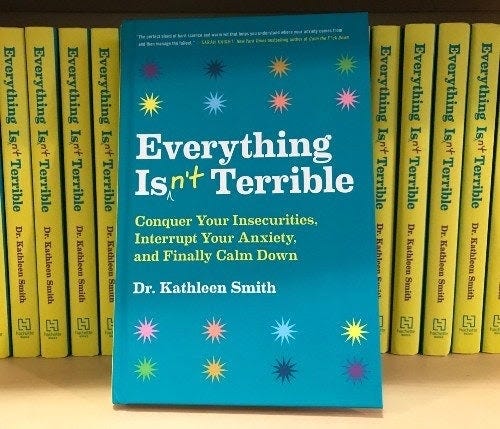Thinking in Threesomes
Teaching yourself to think differently about relationship problems.
When stress is high, we tend to focus on two-person conflict. We complain about a spouse who’s too demanding, an adult child who won’t grow up, or two colleagues who just won’t get along.
Putting your anxious focus on a twosome is often a dead end. It leads to blaming, taking sides, or demanding that one person change. This usually leads to everyone doubling down on their behavior.
But changing a relationship is not a matter of willpower. Change comes from thinking differently about the problem.
One way to think differently is to zoom out. To look past a particular problem and observe the wider, emotional system that is trying its best to keep things stable.
A first step in zooming out is to look for triangles in the relationship system. Because tension doesn’t stay in a single relationships. It spills out. It pulls others in. One central idea in Bowen theory is that the smallest, stable relationship unit is a triangle, not a twosome.
Think about a relationship challenge in your life. Is it possibly a triangle disguised as a two-person problem? Here are a few examples.
Twosome: A seemingly calm marriage could be . . .
Triangle: Stabilized by intense focus on a child.
Twosome: Conflict between two colleagues could get . . .
Triangle: Stuck when the boss always calm them down.
Twosome: A tough mother-daughter relationship could be . . .
Triangle: Intensified by a very distant father.
Twosome: A fragile friendship could be . . .
Triangle: Stabilized by hating the same person.
Some people are just easier targets for our reactivity than others. It might be easier to blame one parent for being over-involved than the one who was distant (or vice versa). More automatic to blame an employee for not being responsible than to see how another has been overfunctioning for them.
Not labeling one person as the problem frees up your own capacity to respond differently to the challenge. In their book Family Evaluation, Dr. Kerr and Dr. Bowen described this as being “unhooked”—not as influenced by your own emotional reactivity.
If we’re honest with ourselves, we are hooked on our own subjectivity and reactivity a majority of the time. Zooming out frees us a little from our own corner. It lights up paths towards change that emotion had obscured.
This week, consider challenging yourself to think differently about “problems” in your relationships. How does thinking triangles instead of twosomes begin to open things up a bit? Do you have ideas about how you could play around with your own responses? Changing your part in the pattern gives others no choice but to change, or to go find someone else to pull into the drama. Either way, you’re little more unhooked.
News from Kathleen
Speaking of triangles, on August 24th, I’ll be presenting at the Family Systems Institute’s annual conference on triangles. (Perfect for folks in the US who want an evening conference.)
Want to support my free newsletter? Buy me a coffee to keep the thoughts flowing, or share it with a friend.
Want to read more of my writing? You can read old newsletters at my website, or buy my book Everything Isn't Terrible from Amazon, Barnes and Noble, Indiebound, or your local bookstore (best option).
Want a free anxiety journal with the book? Calming Down & Growing Up: A 30 Day Anxiety Journal includes thirty daily prompts to help you reflect on and respond to your anxious behaviors. To receive a copy, just email me your receipt of Everything Isn’t Terrible.
Email me if you’re interested in Bowen theory coaching or want me to speak to your group or workplace. Follow me on Twitter, Facebook, or Instagram.
Want to learn more about Bowen theory? Visit the Bowen Center’s website to learn more about their conferences and training programs. Applications are now open for next year’s training programs!




Thanks for the interesting and pragmatic perspective.